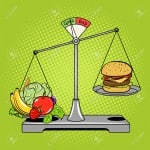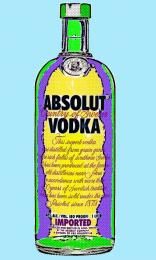Americans are facing more cardiovascular issues than any other part of the world. One of the main causes of cardiovascular issues such as heart disease is a high level of triglycerides in your blood.
Triglycerides are probably the root of almost every cardiovascular issue. They are a type of fat stored in your blood. While triglycerides are necessary for good health if you have too much of  them you can suffer from a range of health issues. They are very closely related to cholesterol. Both cholesterol and triglycerides are types of fats stored in the blood.
them you can suffer from a range of health issues. They are very closely related to cholesterol. Both cholesterol and triglycerides are types of fats stored in the blood.
A high triglyceride level can cause serious cardiovascular issues. According to Dr. Lauri Wright, Dietitian at the National Academy of Nutrition and Dietetics, “If triglyceride levels are too high in the blood, they can cause plaque buildup in the arteries.” Furthermore, a 2007 study published in Annals of Internal Medicine found that young men with the highest triglyceride levels had a 4x greater risk of developing heart disease or having a stroke compared to that of a similarly aged young man with low triglyceride levels.
There are many ways to cut down on your triglyceride levels. No doubt you will be healthier, and before long you will feel better too! Not to mention the fact that this is greatly reducing your risk of having a heart attack.
Lose Weight – Your body only needs to use a certain amount of calories. Any excess calories that the body does not use will be turned into triglycerides. They will additionally be stored in fat cells and blood vessels. Reducing the amount of calories you ingest will not only reduce your triglyceride level, but it will also make you shed a few pounds.
Limit Sugar Intake – the American Heart Association recommends consuming no more than 6–9 teaspoons of added sugar per day, in 2008 the average American was eating about 19 teaspoons daily. Extra sugar in your diet is turned into triglycerides, so  obviously reducing your sugar intake will also reduce your triglyceride levels. One 15-year study showed that those who consumed at least 25% of calories from sugar were twice as likely to die from heart disease as those who consumed less than 10% of calories from sugar
obviously reducing your sugar intake will also reduce your triglyceride levels. One 15-year study showed that those who consumed at least 25% of calories from sugar were twice as likely to die from heart disease as those who consumed less than 10% of calories from sugar
Low Carb Diet – the main cause of elevated triglycerides is carbohydrate consumption, especially the simple sugar fructose. Many different studies have shown that cutting down on your carbs will also reduce triglyceride levels.
Eat Fiber – Fiber rich diets are great for reducing triglyceride levels. Soluble fiber is a nutrient from plant foods that, when incorporated into a healthy diet, may help you lower your triglyceride levels.
Exercise – Exercising burns the fat cells in which extra triglycerides and fat deposits are stored. The more you exercise the more triglycerides and fat you burn!
Avoid Trans Fat – Trans fats are a type of unsaturated fat. They are terrible for your health too. Trans fats are unsaturated fats with a specific chemical structure, where the hydrogen atoms are on opposite sides of the double bond.
Cut out Alcohol – Because alcohol is really high in sugar it is commonly a contributor to triglyceride levels. Cutting out alcohol from your diet will decrease your triglyceride  levels dramatically.
levels dramatically.
Add Soy Protein to Your Diet – Soy is rich in isoflavones, which are a type of plant compound with numerous health benefits. This is especially true when it comes to lowering LDL cholesterol
Eat Tree Nuts – One analysis of 61 studies showed that each serving of tree nuts decreased triglycerides by 2.2 mg/dL (0.02 mmol/L)
Take Garlic Extract – Garlic is virtually good for everything and several studies have shown that it reduces LDL levels and triglyceride levels.
Limit fructose – Many different studies have found that reducing your intake of fructose wlowers your triglyceride levels. It Will additionally increase your overall health, because fructose is bad for everything.
Add Omega-3 Fatty Acids – Fatty fish such as salmon, herring, sardines, lake trout and albacore tuna are abundant in omega-3 fatty acids—a type of fat that is actually good for you. To reap the benefits, the AHA recommends that you eat fatty fish at least twice a week.
Drink Tea – One study participants drank either 200 ml of black tea or plain hot water three times per day for 12 weeks. The results showed significant reductions in triglyceride levels (35.8% in men and 28.6% in women) and LDL/HDL cholesterol ratio (16.6%) in the black tea group.